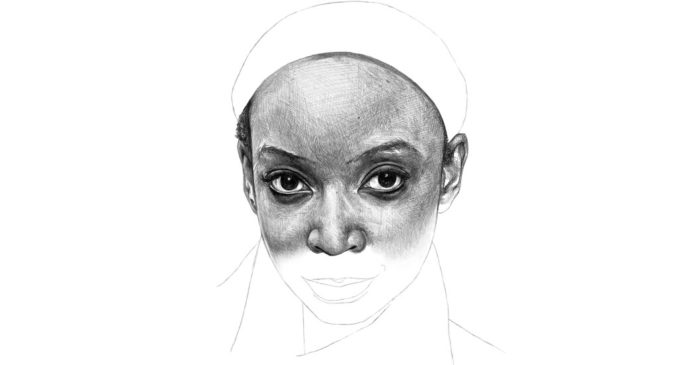
I had read accounts that Lucille aspired to be a writer, but my research uncovered that she actually was a writer. With Gayl’s support, Lucille Jones published stories and novels late in life, and in Lucille’s writing we can see how much the daughter must have learned from the mother: They each use vernacular language, along with the Southern gothic tradition, as the raw stuff of art. They are not pious about content, but they are committed to finding meaning in the most mundane events. The resonances between their work made me think about how, in Black English, we often call our childhood home “my mama’s house,” even if our father lives there, too. The mother conventionally builds the space for us to come of age — and Jones still lives in her mother’s house, figuratively and literally. They were peers, and Gayl’s life has been a harvest of and homage to Lucille’s. It does not seem that Lucille Jones was a tragically frustrated artist like the women Alice Walker wrote about in her famous essay “In Search of Our Mothers’ Gardens,” oppressed and silenced Black women who turned into witches out of necessity. Lucille Jones seems more like Emily Dickinson with a Black Southern woman’s life story. Gayl Jones would achieve great recognition yet follow directly in her mother’s footsteps: a quiet interior genius.
According to the Kentucky poet laureate and professor Crystal Wilkinson, the Joneses were a private family. She told me that childhood neighbors describe Gayl and her brother as never playing with the other kids, though they sometimes passed a ball over the fence between the Jones home and theirs. Wilkinson speculates that this may have had something to do with the fact that they were cautious about Lexington’s urban ways. Or maybe the taciturnity was just a family idiosyncrasy. Franklin Sr. was a cook, and Lucille was a homemaker. They grew up in the Kentucky cities of Midway and Frankfort. Frankfort was a learned community, with one of the highest concentrations of Black teachers in the state during Jim Crow. Gayl Jones visited her grandmother there often and benefited from both a formally educated community and a rich body of family lore, including stories about a great-grandfather who founded a settlement after Reconstruction bearing his name, Warthumtown. Jones was raised with a strong sense of the importance of having a place of one’s own.
Jones described her years in a segregated school as intellectually nurturing. When it came to high school, however, Lucille sent Gayl and her brother to be among the handful of Black students at Henry Clay High School. There, according to an English teacher, Sue Anne Allen, Gayl was a friendless student of exceptional intellect. Her Spanish teacher and mentor, Anna Dodd, alerted the established writer and Lexington native Elizabeth Hardwick about Gayl. Hardwick in turn facilitated Gayl’s admission to the small, elite Connecticut College, where she studied with the distinguished poets William Meredith and Robert Hayden.
Meredith became a mentor to Jones. Even as a young student, he noted, she “knew what she was doing” as a writer. This is what I came to know, too, as I pored over finding aids of multiple libraries, looking for Gayl Jones. I found through the Connecticut College special collections that Jones corresponded regularly with Meredith, and found that he, a gay white Frost scholar, was a part of a Black literary community. He and Jones were close, often exchanging letters about craft and the minutiae of life. Their exchanges reveal her playful personality as well as her serious mission. Like many other writers, she grappled with the question of inheritances. Like a few, she was interested in the thread of connection between Black people across the New World, including the Spanish- and Portuguese-speaking nations. She loved Latin American literature. Distinctly, however, she focused on nonidyllic love and a skepticism toward motherhood.
In 1970, when Jones was an undergraduate at Connecticut College, her work was included in an anthology, “Soulscript,” which was edited by the Black feminist writer June Jordan, one of William Meredith’s friends. Jones is in the first section, which is dedicated to younger writers. Her poem, “Tripart,” offers a sense of what she must have thought about the scene at Connecticut College:
a very friendly
prison
this is —
white kids discussing politics
and suddenly your nerves have a finished
form (half-digested rage) —
And later in the same poem:
connecticut has trees
and white has two faces …
Whatever her ambivalence was about the college, Jones flourished. She received the Frances Steloff Award for her short story “The Roundhouse” in 1970 and then matriculated at Brown University for a doctorate in creative writing. At Brown, she studied with another poet, Michael Harper, who was known as one of the great chroniclers of Black history and culture. He would become her closest mentor.
In 1974, Harper sent a box of Jones’s writing to his friend Toni Morrison, who was then an editor at Random House. Morrison wasn’t delighted. “Every time I looked at it, my heart sank, and I wondered who would be so callous as to send me ‘all’ of the literary output of a student and expect a reasonable response. … The presence of this box intimidated me and finally it threatened me.” One Saturday morning, however, Morrison had a few hours before taking her sons to some afternoon activity. She opened the box, planning to make a quick assessment of what was wrong with the writing. Several editors had already passed on Jones’s work.
But once Morrison began reading one of the short novels inside, “Corregidora,” she was transfixed. She described the experience in an essay about Jones written for Mademoiselle magazine: “This girl had changed the terms, the definitions of the whole enterprise. So deeply impressed was I that I hadn’t time to be offended by the fact that she was 24 and had no right to know so much so well. She had written a story that thought the unthinkable: that talked about the female requirement to make generations as an active, even violent political act.” In a blurb for the book, James Baldwin called it “the most brutally honest and painful revelation of what has occurred, and is occurring, in the souls of Black men and women.”








